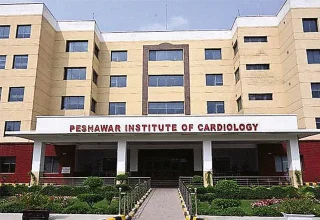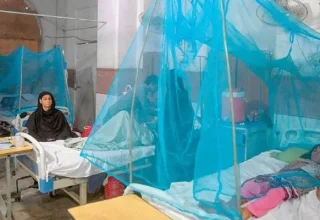
An alarming rise in heart attacks and cardiac arrests among young people in Pakistan is raising serious concerns among health experts, as avoidable lifestyle habits and delayed diagnosis of diseases continue to claim lives that are far too young.
The tragic death of a schoolteacher recently, who suffered a fatal cardiac arrest while delivering a lecture, has shocked the public and sparked a wave of questions: Why are young hearts stopping so early?
According to new research conducted by cardiology institutes across Pakistan, one in every three heart patients is under the age of 40 — a startling statistic that highlights the growing vulnerability of the youth to cardiovascular diseases. Moreover, 50% of individuals aged between 30 and 50 are now living with high blood pressure, while 32% have been diagnosed with diabetes — both major risk factors for heart complications.
However, health professionals warn that the real danger lies in neglect and delayed diagnosis.
“Basic symptoms are being ignored, and routine checkups are rare. By the time a diagnosis is made, the condition is already advanced,” said a senior cardiologist from Punjab Institute of Cardiology. “Timely medical screening and lab tests every six months can save countless lives.”
Lifestyle habits to blame
Experts say that poor diet, lack of exercise, mental stress, and addiction to digital gadgets are contributing to deteriorating physical health among young people. A growing number of youth are distancing themselves from home-cooked meals and physical activity, while fast food and sedentary lifestyles have become the norm.
“Technology is a double-edged sword,” said a public health expert. “It connects us to the world but is also making us physically inactive and mentally drained.”
Need for emergency awareness
In many cases of sudden cardiac arrest, lack of awareness and immediate medical response leads to avoidable deaths. The head of the Punjab Institute of Cardiology emphasized the need for public training in emergency CPR techniques and ensuring basic first aid knowledge is widespread, especially in workplaces and educational institutions.





































